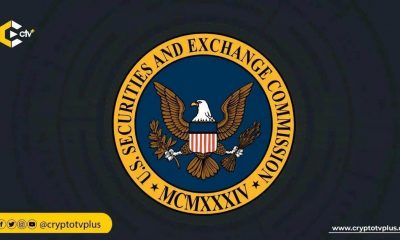News
SEC broadens Binance lawsuit; adds more tokens as unregistered securities

The U.S. Securities and Exchange Commission (SEC) has expanded its lawsuit against Binance, now classifying additional tokens, including Axie Infinity (AXS), Filecoin (FIL), and Cosmos (ATOM), as unregistered securities.
This development is part of the SEC’s ongoing efforts to regulate the cryptocurrency industry and enforce compliance with securities laws. The SEC in the updated legal filings accuses Binance and its U.S. affiliate, BAM Trading, of facilitating the trading of these tokens without proper registration and promoting them as investment opportunities.
According to the SEC, Binance violated the law by selling BNB (their cryptocurrency) to employees after their Initial Coin Offering (ICO) without registering it, thus breaching Section 5 of the Securities Act.
The update also addresses previous issues related to Binance’s unregistered sales of a product called “simple earn,” once again violating the same law.
Additionally, it resolves issues with claims that Binance acted as a middleman in transactions involving BNB, treating it as a security (like a stock or bond) without following the proper legal steps.
The SEC also alleges that Binance engaged in similar practices with ten other cryptocurrencies, which were also offered and sold as securities. These cryptocurrencies include SOL, ADA, MATIC, FIL, ATOM, SAND, MANA, ALGO, AXS, and COTI.
The SEC’s complaint reiterates its position that Binance operated illegally as an unregistered exchange, broker-dealer, and clearing agency, emphasizing the lack of disclosure regarding the risks associated with the tokens traded on its platforms.
US Rep. John Rose proposes a bill for a joint SEC-CFTC committee to oversee digital asset rules.
The SEC determines whether an asset is classified as a security primarily using the “Howey Test,” established in the 1946 Supreme Court case SEC v. W.J. Howey Co. This test outlines four criteria that must be met for an asset to be considered an investment contract, thus qualifying it as a security.
First, there must be an investment of money. Second, the investment must be made into a common enterprise. Third, there should be an expectation of profits from the investment. Finally, any profits must come from the efforts of a third party or promoter.
When assessing digital assets, including cryptocurrencies and tokens, the SEC applies this test. If an asset meets these criteria, it is deemed a security and falls under SEC regulations. This approach aims to protect investors by ensuring that offerings are registered and relevant information is disclosed to the public.
In recent years, the SEC has increasingly focused on the digital asset space, asserting that many cryptocurrencies fall under its jurisdiction as securities. The agency’s 2019 Framework for Investment Contract Analysis of Digital Assets further clarifies how it evaluates whether a digital asset meets the Howey Test criteria.
The SEC’s stance has sparked controversy, especially since it clashes with the Commodity Futures Trading Commission (CFTC), which classifies certain digital assets as commodities. This regulatory overlap has prompted calls for clearer guidelines and a more unified approach to digital asset regulation in the United States.
























